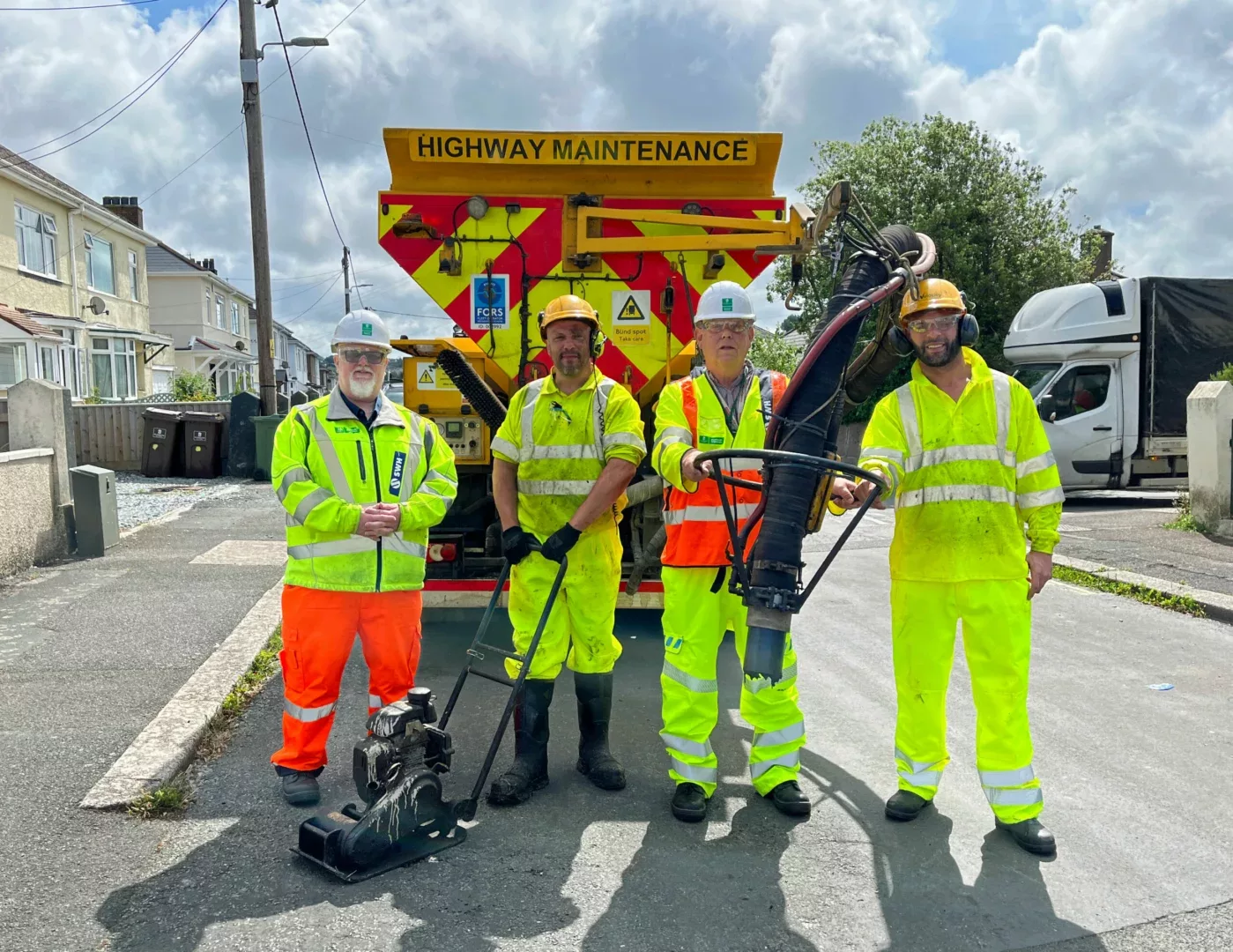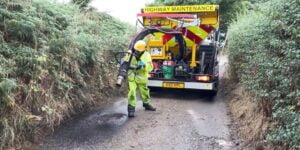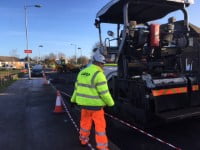Innovation continues to be explored by Plymouth City Council in its fight against potholes, with the trial of a new, quick, low carbon, road patching system.
A six month trial has begun to trial a Velocity road patching system, a machine that can carry out permanent, durable repairs at a fraction of the cost and, because there’s no excavation, no waste and no heat involved, it creates a significantly lower carbon footprint.
Today, Councillor Mark Coker, Cabinet Member for Strategic Planning and Transport, went out to Plymstock to watch the new machine in action. He said: “We made a promise to fill more potholes more quickly to help keep our roads safe and the city moving.
“This new machine means there’s no excavation, no waste, often no need for road closures, and repairs are ready to drive on in minutes. The repairs cost a third of the price of traditional techniques, and because there’s no heat involved, it’s also exceptionally low on carbon emissions.
“The Council is facing significant financial challenges and, with reduced funding and spiralling costs, it’s crucial we explore more cost-effective ways of maintaining the city’s road network.
“By focusing more on techniques like spray-injection patching, we can repair more defects and extend the life of our roads with significantly less cost and disruption – and, importantly, far fewer carbon emissions.
“Over the next year I will continue to look at what further innovation can be identified in the fight against potholes and working with our contractors we will explore lower-carbon methods in maintaining our highways.”
Highways inspectors will continue to assess potholes based on the current criteria but, in a change of approach, surrounding potholes that don’t quite meet the required levels will also be repaired. In some cases, the whole road may be treated (although this will require a road closure and more lead-in time).
Other treatments including micro-asphalt surfacing and surface dressing will continue to be used, along with full resurfacing where appropriate.





















